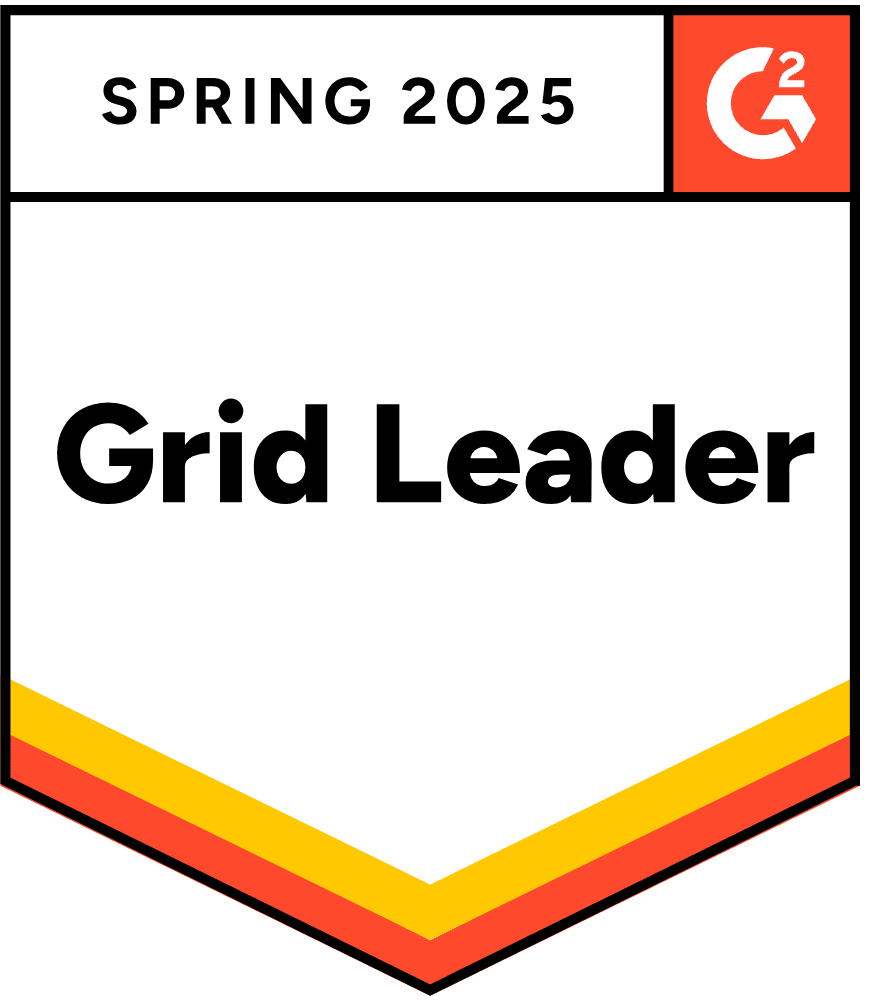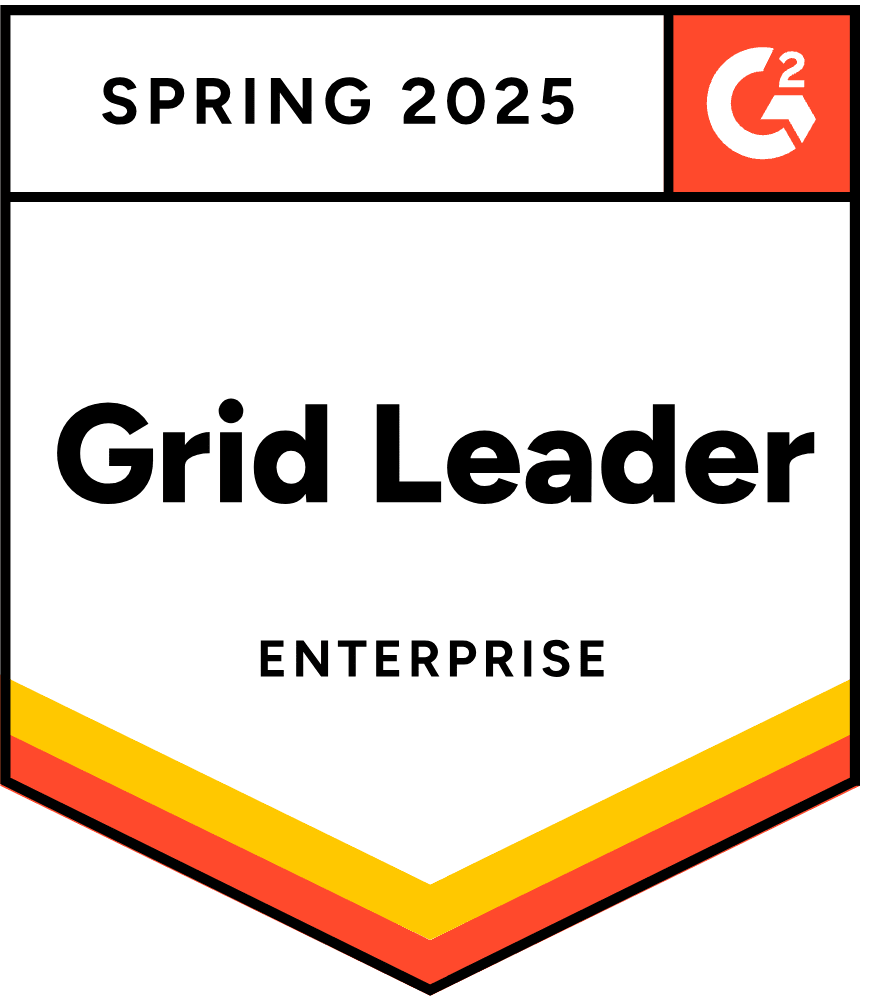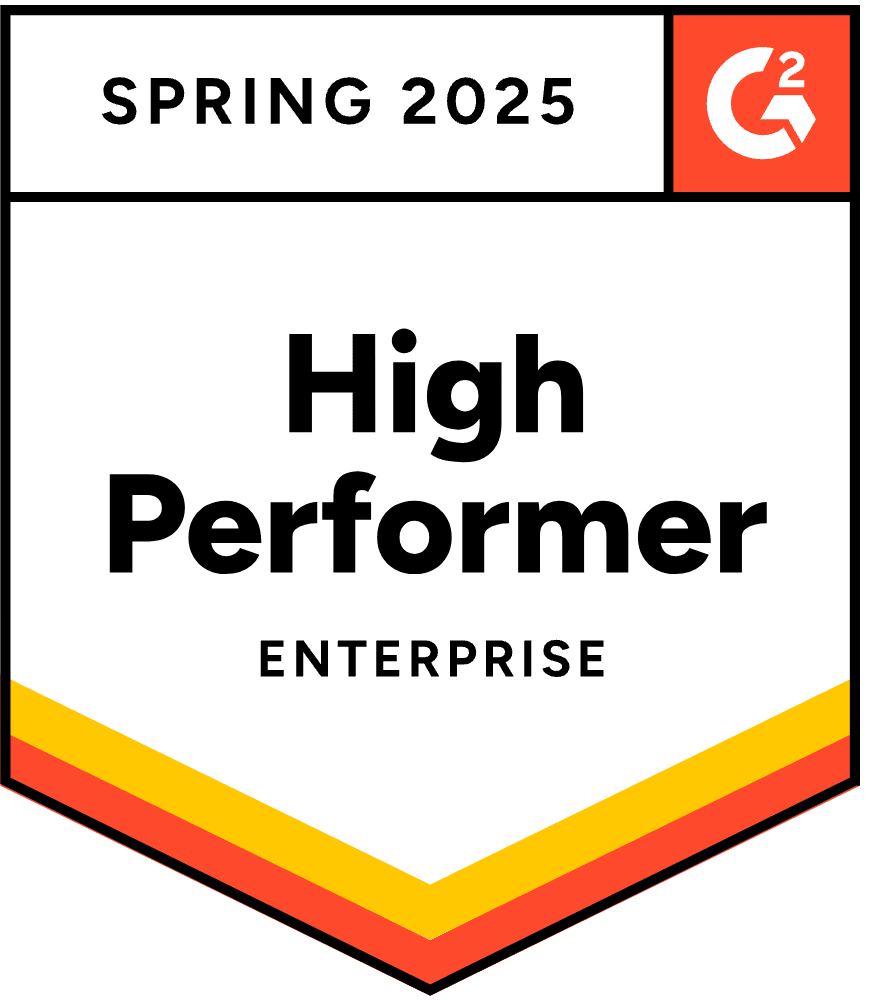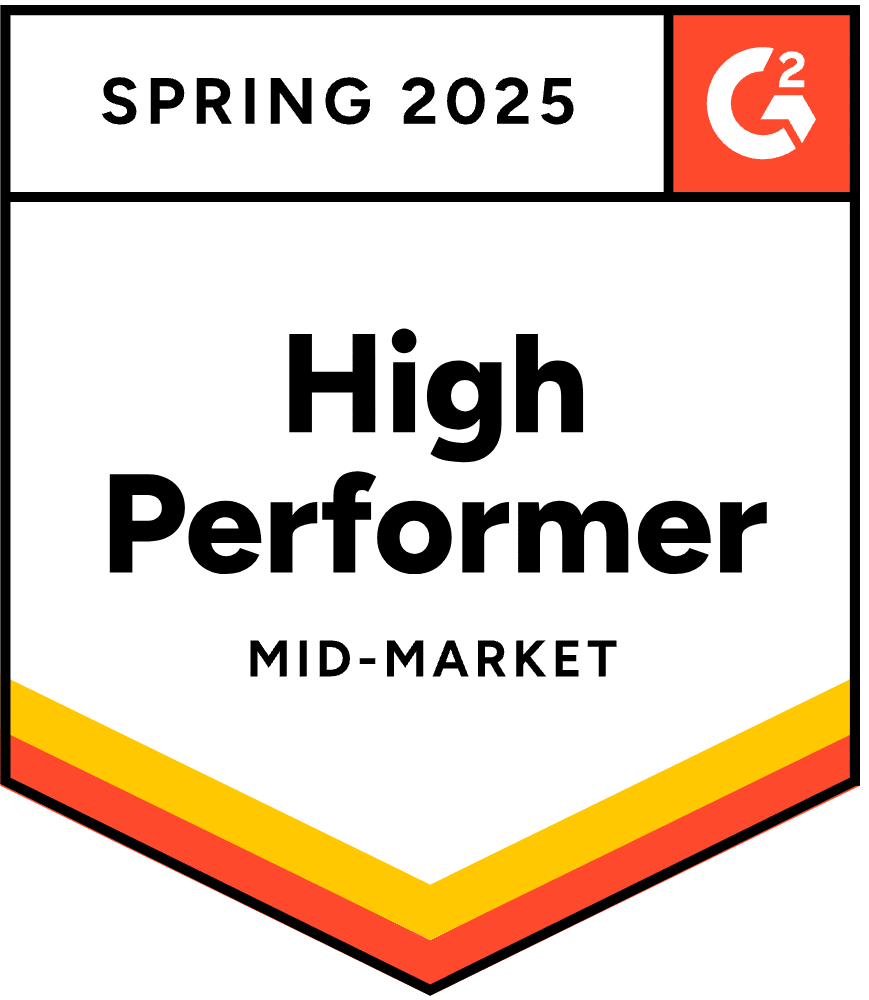In the evolving landscape of job applications, we sought insights from senior technical recruiters and CEOs on how candidates are leveraging AI in their responses to job postings. From the use of AI for resume tailoring to the necessity of a personal touch in AI-enhanced applications, explore the diverse perspectives of twelve professionals on this tech-driven trend.
AI for Resume Tailoring, Not Writing
Using AI to compare your resume to the job description is an amazing use case and can help candidates see where their resume isn’t highlighting relevant experience! However, I would discourage candidates from using AI to write unedited resumes or cover letters.
I’ve seen multiple resumes with the same format and almost identical content, which feels less than genuine. I have no problem with a candidate using AI to create a draft, but it should be heavily edited by the time it gets to a recruiter for review.
Steph McDonald, Senior Technical Recruiter, HubSpot
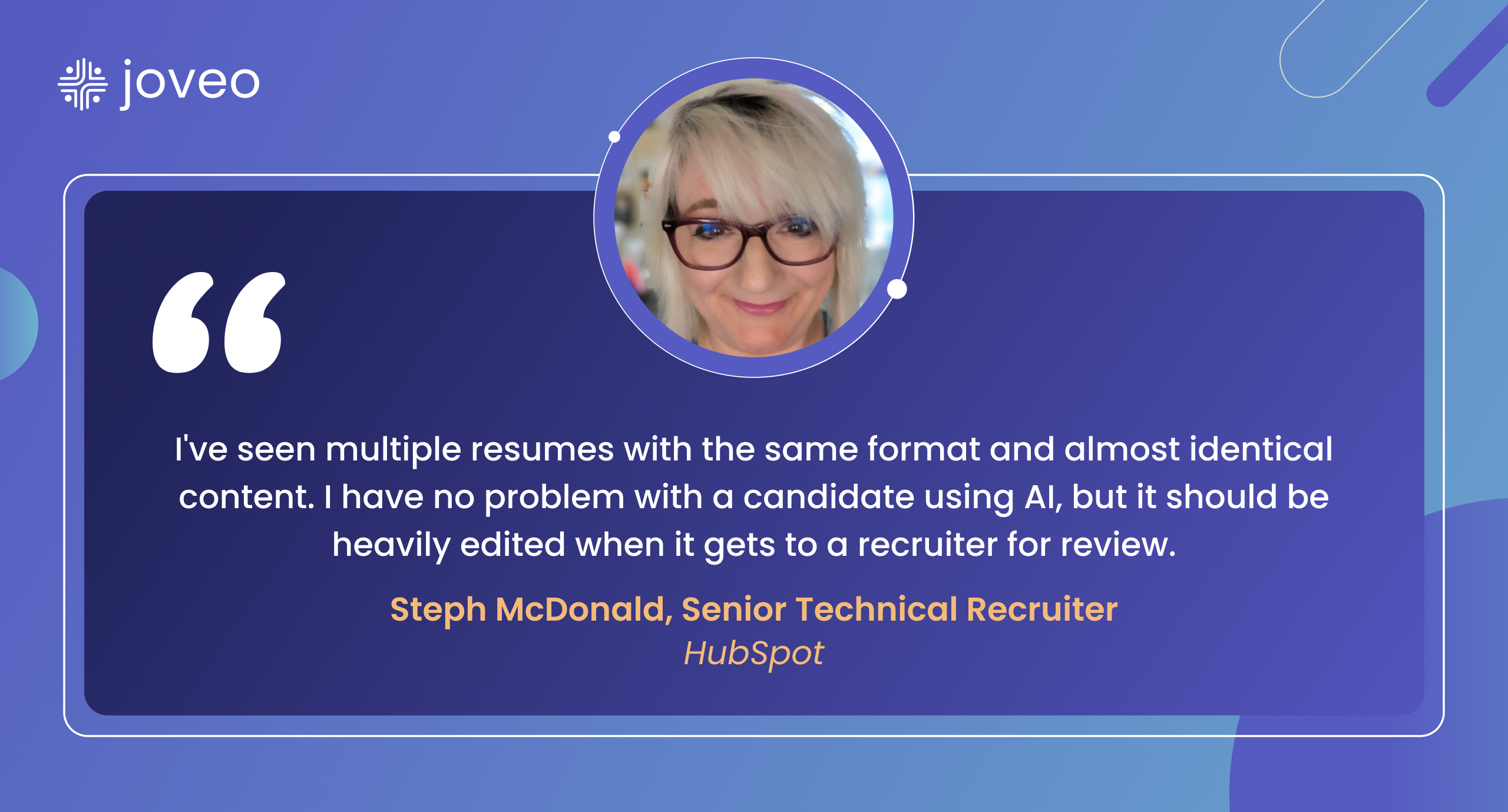
Polish AI-Generated Resumes
I have noticed that many candidates are using AI to write their resumes. This is perfectly fine, but a candidate should read over what the AI has generated. Often, I see very quickly and clearly that AI has written the resume because the wording, grammar, and sentence structure are not correct.
Clearly, the AI has generated something based on a job posting, and the candidate has not read it over to ensure it actually makes sense to someone reading it. Whether a candidate uses AI or not, ensuring a resume is polished – think font continuity, same tense throughout, visually appealing, concise, and accurate – and tailored to the job one is applying for is key to ensuring your resume lands well with a recruitment team.
AI is a wonderful tool that will create many efficiencies, but it is just that – a tool. It is not a replacement for human thought and input.
Heather Kerr, Human Resources Manager
Well, we’ve done the analysis for you! Take a gander at this go-to source for a complete understanding of how AI can be used in TA.
Are You Evaluating the Pros and Cons of AI for Talent Acquisition?
AI Resume Builders Can Impress or Fail
As an experienced leader in the health IT industry, I’ve observed that candidates are increasingly leveraging AI tools to tailor their responses to job postings. One notable example involves the use of AI-driven resume builders that parse job descriptions and generate customized resumes.
This technique helps candidates highlight relevant skills and experiences, increasing their chances of catching the hiring manager’s eye. For instance, a candidate applied for a health IT consultancy role using an AI-optimized resume that emphasized their expertise in integrating AI with Electronic Health Records (EHRs), directly speaking to a key requirement listed in the job posting.
However, there are pitfalls. In one instance, a candidate used an AI-generated cover letter that ended up being too generic and did not address specific questions posed in the job posting. This demonstrated a lack of genuine interest in the role and was quickly identified by our team, leading to their elimination from the hiring process. The lesson here is that while AI can assist in structuring and enhancing applications, it should not replace personalized and well-thought-out responses.
On the positive side, AI tools have also shown potential in screening and shortlisting candidates effectively. During a recent recruitment drive, we used an AI-based applicant tracking system that automatically filtered through applications, identifying those with the highest relevance based on predefined criteria such as experience in digital/print marketing and US Department of Defense IT projects.
This not only saved us considerable time but also ensured a more objective and impartial screening process, reducing human biases. However, continuous monitoring and adjustments were necessary to ensure that the AI system’s decisions aligned with our organizational values and objectives.
David Pumphrey, CEO, Riveraxe LLC
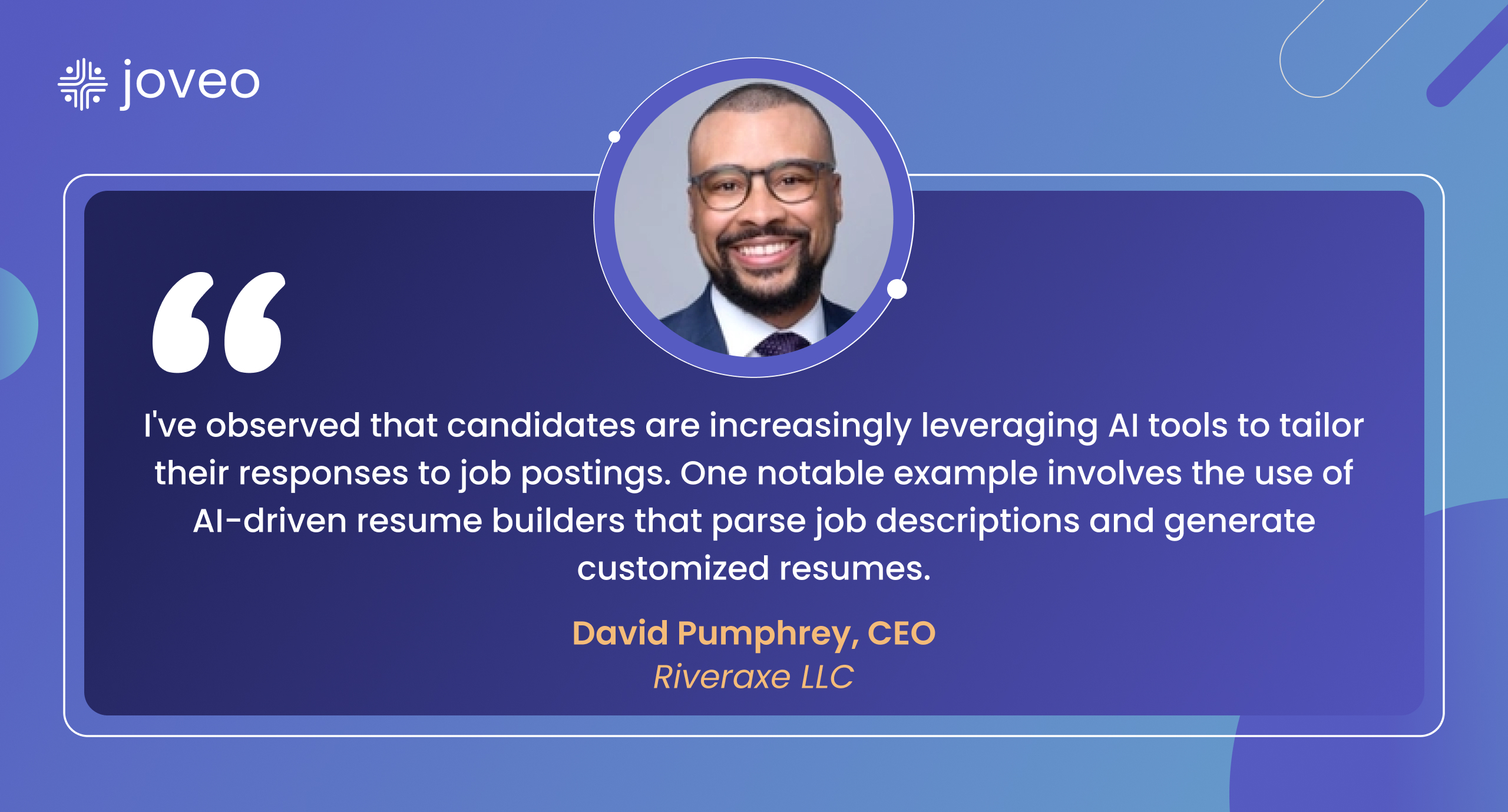
Mixed Results from AI Application Tailoring
In my experience, candidates leveraging AI tools to tailor their applications often achieve mixed results. For instance, during my time working with a FinTech startup, a candidate applied for a product design role and used an AI tool to draft a resume that precisely highlighted key skills in UX/UI design and digital finance, perfectly matching our requirements. This highly customized approach was impressive and led to an interview.
Conversely, there have been instances where heavy reliance on AI-generated content backfires. When working with a data analytics platform in 2021, we received a cover letter that was clearly AI-generated. It was well-structured but lacked any meaningful connection to our company’s values or specific project needs. This impersonal approach resulted in the application being dismissed swiftly.
On the hiring side, integrating AI has been transformative. While redesigning the search experience for 33 online marketplaces, we employed an AI-based applicant tracking system to filter resumes. This tool efficiently identified candidates with relevant skills in React and data analytics, dramatically reducing our initial review time and ensuring we focused on the most qualified individuals. This approach streamlined our recruitment process and enhanced the quality of our hires.
Hansjan Kamerling, Co-Founder, Adaptify AI
AI-Enhanced Applications Need a Personal Touch
In my role as founder of MBC Group, I’ve seen candidates using AI in varied, sometimes fascinating ways. One standout was an applicant for a social-media strategist role. They used AI to craft a resume and cover letter that precisely highlighted their experience in managing AI-driven chatbots and automating customer interactions. This kind of tailored alignment with our newly launched AiDen chatbot made their application particularly compelling and led to an interview.
On the downside, I’ve witnessed candidates overly relying on AI, which can backfire. One such example was an applicant who submitted an AI-generated cover letter that was too generic and failed to resonate with our AI-driven marketing solutions focus. This lack of specificity and personal touch was evident and led to their swift dismissal. It’s a clear lesson that while AI can structure applications, it shouldn’t replace genuine engagement with the specific role and company.
On our end, integrating AI into our hiring processes has been transformative. We use AI-based applicant tracking systems to filter resumes, significantly reducing our initial screening time. For example, when hiring for roles involving AI tools or digital marketing, the system effectively identifies candidates with relevant experience, such as familiarity with chatbots or predictive analytics. This ensures we spend more time on in-depth evaluations with the most qualified candidates, improving both efficiency and the quality of our hires.
Matthew Montez, Founder, The MBC Group
AI Precision in Applications Can Lead to Interviews
At Datics AI, I’ve observed a fascinating range of uses of AI by job candidates. A standout instance involved a candidate for a data scientist role who used AI to meticulously tailor their resume and cover letter. They highlighted their proficiency in machine learning algorithms and specific projects that directly aligned with our needs. This precise customization made their application compelling and led to an interview.
However, not all applications fared well. One candidate heavily relied on an AI-generated cover letter that was too generic and lacked any connection to our company’s values or specific role requirements. It was apparent that there was no genuine effort put into understanding Datics AI’s unique focus on client satisfaction and attention to detail, which led to the application being dismissed.
On our end, we’ve integrated AI to streamline our hiring process effectively. We utilize an AI-based applicant tracking system that filters resumes based on criteria like experience in AI and software development. This tool has significantly reduced our initial screening time, ensuring that we spend more time on in-depth evaluations of candidates who truly meet our needs, ultimately improving the quality of hires.
Umair Majeed, CEO, Datics AI
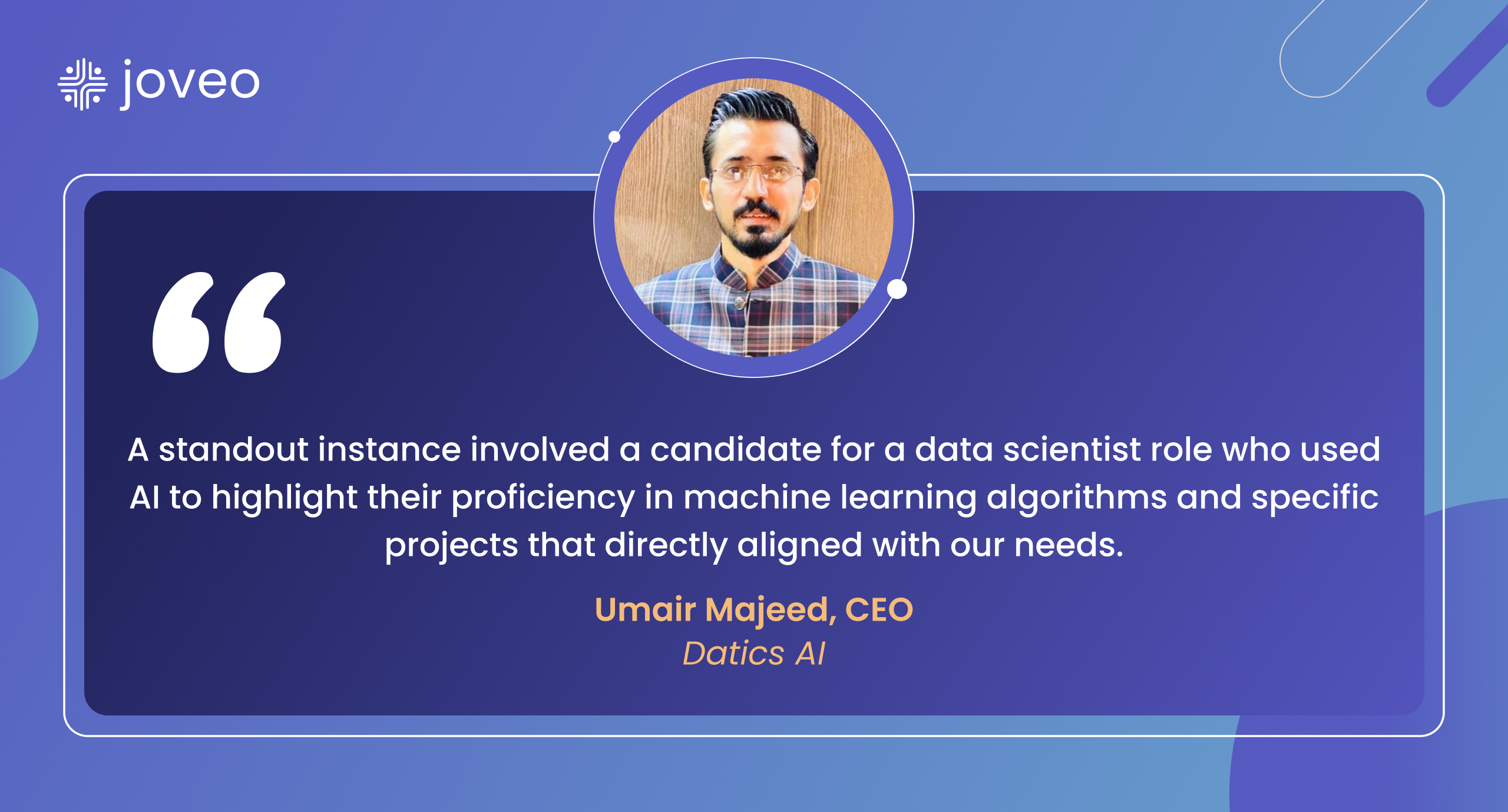
AI-Driven Customization Versus Generic Submissions
In my experience as co-founder of Profit Leap and working with AI-driven recruitment tools, I’ve observed candidates leveraging AI tools to both exceptional and subpar results. One impressive instance involved a candidate who used an AI-driven tool to tailor their resume and cover letter for a fractional CFO role. The AI enhanced their application by highlighting specific skills in financial modeling and small business advisory, which perfectly aligned with our requirements. This precise customization stood out, leading to an interview.
On the flip side, some applicants overly depend on AI, resulting in generic submissions. One particular candidate used an AI to generate a cover letter that was polished but lacked any personal touch or connection to our specific job role and company culture. It became clear that the application was not tailored thoughtfully, which led to its dismissal. This underscores that while AI can aid in structuring applications, genuine personalization should not be overlooked.
At Profit Leap, we’ve also integrated AI into our hiring process to enhance efficiency. We use an AI-based applicant tracking system to filter resumes based on key criteria like experience in financial software engineering and CPA certification. This tool significantly reduces our initial screening time, ensuring we focus on candidates whose backgrounds closely match our needs, ultimately improving our hiring quality.
Russell Rosario, Co-Founder, Profit Leap
Candidates Use Adaptability Versus Authenticity
At eLearning Industry Inc., where we oversee a vast digital platform publishing numerous articles and eBooks, we’ve noticed a fascinating trend: candidates increasingly use AI tools to tailor their applications. This can be both beneficial and problematic.
On the positive side, candidates use AI to enhance the quality of their applications, ensuring that their resumes are meticulously polished and that their cover letters are relevant to the job description. This use of technology shows adaptability and a keen understanding of leveraging tools for professional advancement.
However, there’s a downside. Some candidates rely too heavily on AI-generated content, which can result in applications that lack a personal touch or fail to genuinely reflect the candidate’s true voice and capabilities. We once received an application where the cover letter felt unusually generic and disconnected from the individual’s actual experiences listed on LinkedIn.
This hinted at a potential over-reliance on AI, detracting from the authenticity we value. It’s a delicate balance, and while we appreciate technological adeptness, genuine, self-representative applications resonate more deeply with us.
Christopher Pappas, Founder, eLearning Industry Inc
AI Tools Should Complement, Not Replace Effort
AI-driven tools can help candidates tailor their resumes to fit job descriptions more closely by highlighting relevant skills and experiences. For example, I’ve seen candidates use AI tools to match keywords from the job description in their resumes. When done correctly to strengthen an already well-written resume, this can really improve the applicant’s chances of getting noticed.
On the other hand, some candidates rely too heavily on AI-generated responses for cover letters or interview prep, which can result in dry, generic, and impersonal language that makes it hard for hiring managers to connect with them.
Recently, a candidate submitted a cover letter that was clearly AI-generated, filled with generic statements and lacking any personal touch or specific details about why they were a good fit for the role. This made it difficult to assess their genuine interest and suitability for the position, which ultimately led us to not moving forward with their application.
Geoffrey Scott, SEO Content Manager and Certified Professional Resume Writer (CRPW), Resume Genius
Avoid AI-Generated, Pointless Cover Letters
I’m not one of those recruiters who only scan a resume for five seconds and chuck cover letters in the bin without reading them. When candidates have a relevant resume, I’m always interested in reading a cover letter if they’ve attached one. However, it seems like the recent evolution of artificial intelligence has pushed many candidates to conjure cover letters out of thin air. Even the ones with no actual point to make or experience to share submit page-long rambles about themselves.
Recently, I received a cover letter for an entry-level desk job that exemplified this issue. The candidate listed their soft skills and how each would benefit them in the role. While this may seem like a good strategy, it’s important to remember that soft skills are best demonstrated in interviews, not in your application. This approach not only felt repetitive but also left the page feeling empty, devoid of any real substance.
It’s a dead giveaway when you submit a cover letter with excessively long sentences and paragraphs repeating certain words and providing vague information without really saying anything. I feel like this practice is making the application process harder for candidates with genuine things to share; it’s difficult to make your cover letter stand out when the recruiter is going through pages upon pages of mindless content.
Ben Lamarche, General Manager, Lock Search Group
Tech-Savvy Candidates’ AI Uses Vary Widely
I work primarily with candidates in the areas of technology and engineering, so they are, by and large, a very tech-savvy bunch. Because of this, many of the job seekers we work with were early to jump on the AI bandwagon, and I have seen a plethora of different uses of this technology in responses to job postings that run the gamut from excellent to terrible and everything in between. I’ll highlight one good and one bad example.
To start, the good: Candidates using an AI-driven resume builder to optimize their resume for the job they’re applying for. There are several tools out there that can either create a resume for you based on a specific job description or analyze your resume against a job description so you can improve it and increase your odds of getting an interview. These can be very helpful for interpreting the content of a job description and ensuring that you’re highlighting the right skills and experience to get noticed.
The bad: Candidates who use an AI to write their entire resume and/or cover letter, then do nothing to improve or revise it before sending it to us. Sometimes this will even lead to the resume contradicting the cover letter, or completely false information ending up in one or both.
Even when everything is correct, hiring managers by this point have seen enough AI-written applications that we can often tell right away when something was written entirely by, particularly, a free AI writer. This is especially an issue with cover letters, which end up reading as formulaic and bland, and often don’t effectively highlight why the candidate is an ideal fit for this specific role.
In summary, I’d tell job seekers that it’s smart to use any tool at your disposal that can make your job search easier, and that can include AI. However, relying entirely on any tool isn’t smart, and doing so makes you come across as lazy and uninterested in the role. I will also say that, the times candidates have used AI effectively, I only knew it because they told me after the fact—I couldn’t tell just from reading their application.
Rob Boyle, Marketing Operations Director, Airswift
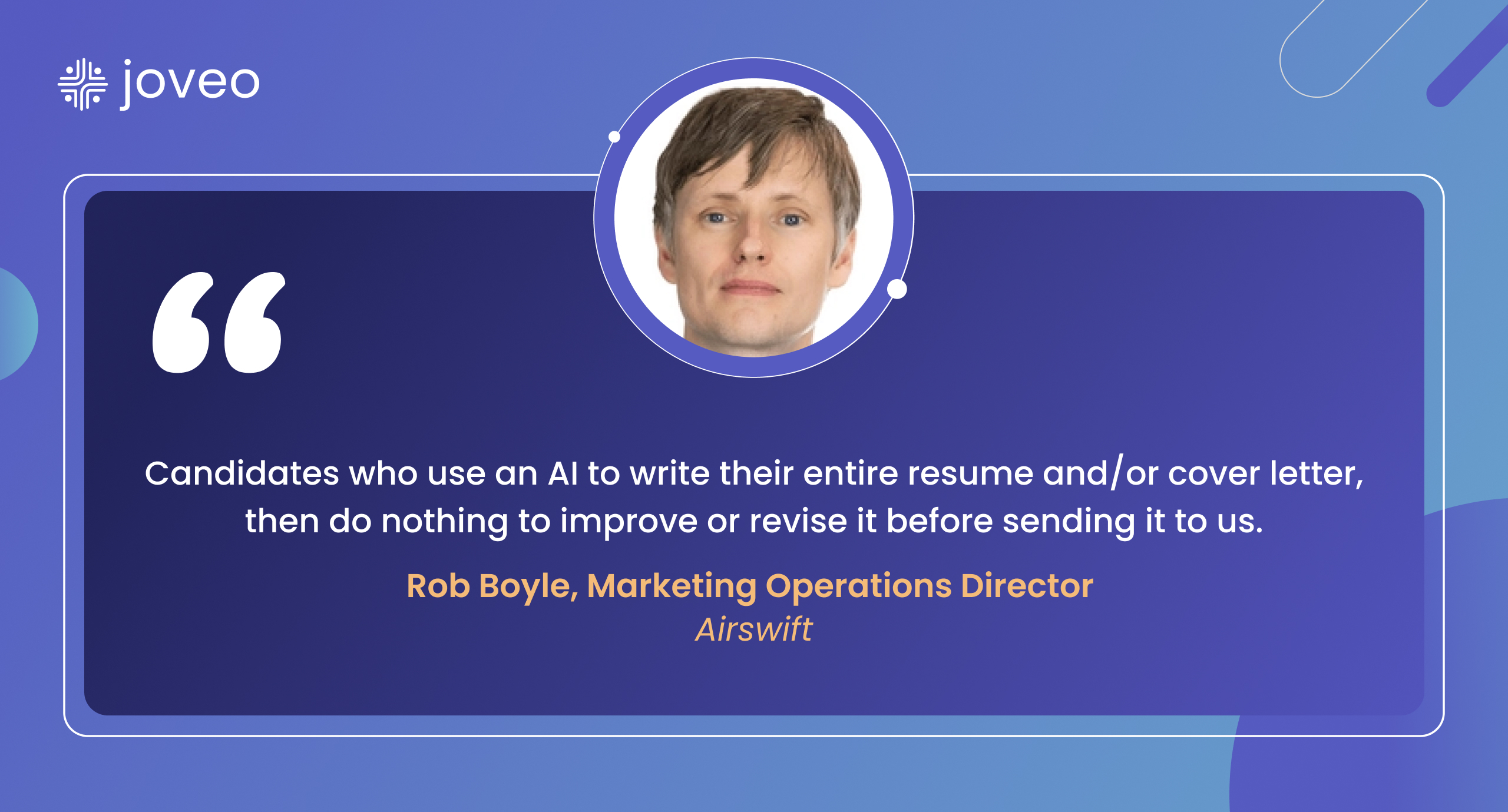
AI Assistance Is a Balancing Act for Candidates
Candidates are increasingly using AI tools to help craft their resumes and cover letters when applying for jobs. This can be a double-edged sword. On one hand, AI assistance can help job seekers create polished and tailored applications, which reflect a good understanding of the role and company.
For example, I’ve seen applicants use AI to match their skills and experiences with our job descriptions, making it easier for us to spot the relevance of their qualifications quickly. This shows they’ve put thought into their application, which is always a plus.
However, there’s also a downside. Sometimes, you can tell when an application feels too generic and lacks a personal touch. It’s as though the candidate just plugged keywords into a machine and hit “generate.” This can backfire because it suggests a lack of genuine interest or effort.
A specific instance comes to mind where a candidate’s cover letter reads like a perfect template but misses reflecting any real connection to our company’s mission and values. It’s important for candidates to balance AI-generated content with their own voice and authenticity. Mixing both can make their applications stand out while showing they truly understand and care about the role.
Mary Tung, Founder and CEO, Lido.app
Conclusion
AI-powered applications are transforming how candidates respond to job postings. While AI tools can enhance resumes and cover letters, it’s essential for candidates to add a personal touch to avoid generic and impersonal applications. Balancing AI assistance with genuine engagement can significantly improve the chances of landing an interview.
See us in action to boost your company’s productivity. Follow us on Twitter and LinkedIn for more hiring insights!



